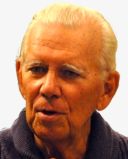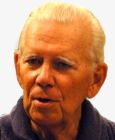
Addiction
Ridding Happiness Contaminants 8: Addictive Behavior
Getting started getting stopped
Posted June 1, 2016

This blog will be the first of three devoted to ridding addiction behavior. To begin, let me draw the important distinction between a physical addiction and a psychological addiction. When someone is physically addicted, the body is enslaved to or cellularly craves some substance such as alcohol or drugs. The addicted person will then suffer some severe physical withdrawal symptoms when the body is denied the substance. With a psychological addiction, there is no physical dependency, nor perhaps even a substance involved, but an emotional one; without the substance or the activity (e.g., shopping), the person does not experience physical withdrawal pain when denied, but emotional pain, such as strong frustration, anxiety, and even panic.
This distinction is important for three reasons. One is that, though usually unpleasant and often quite painful, the body tends to rid itself of the physical addiction in relatively short order; in other words, the physical addiction is over, leaving only the psychological addiction. Two; a psychological addiction can be to some chemical substance (e.g. alcohol), but also, as suggested above, to some activity (e.g. shopping, sex, eating, exercise, gambling) whereby the activity has both become compulsive and leads to disastrous side effects. Three, whether or not one possesses a concurrent physical addiction, one must ultimately conquer the psychological addiction if there is ever to be an enduring recovery.
I leave it to others to educate you about the physiology of physical addiction and withdrawal. Here let me address the inner cause of the psychological addiction. I hope you find the following helpful to get your started on the way to recovery.
The Psychology of Addiction
Think of psychological addictions as falling into two broad categories: Pleasure Seeking Addiction and Pain Avoidance Addiction. Both types are powerful and require sustained, determined effort to overcome, most often along with competent professional help.
Pleasure Seeking Addiction. In this type of psychological addiction, the addict thinks pretty much like a two-year-old. I’m reminded of Randy, a twenty-four year-old addicted to cocaine. Like his non-addictive counterparts, he started with a rational desire for the pleasure cocaine afforded him, as per, “I would love to have the thrill of that high again.” But unlike his rational brethren, instead of thinking, “Just because I want it, it doesn't mean I have to have it, so I'll pass,” he held the automatic, compelling addictive thought, “Because I want that thrilling pleasure, I have to have it.”
Holding the irrational, desperate belief that he had to have what he wanted, needed to have, couldn't exist without it, in this case the thrill cocaine provided, he created a compulsive psychological addiction for himself. Twelve-step programs call this “stinking thinking.” Regardless of what it’s called, Randy would never recover so long as he continued to think in these two-year-old addictive ways.
So, whether it be the pleasure of some substance, such as cocaine, or the pleasures of some activity, like shopping or pornography or gambling, the culprit is the habitual, deeply endorsed self-indulgent thinking. “I have to have what I want – now!” This thinking drives the compulsive activity of Pleasure Seeking Addiction.
Pain Avoidance Addiction. This type of psychological addiction is more complicated than the one just described and typically involves three phases. In phase one, as a result of some irrational thinking, the person experiences some unpleasant, often painful emotion such as anxiety, depression, guilt, or anger. Then, in phase two, the person thanks, “This emotional pain is too horrible to bear, I must get relief now, I must have a drink.” This desperate thinking compels a person to desperately indulge in the addictive substance or activity of choice to immediately and temporarily eliminate the emotional pain. Then, in phase three, the person damns oneself for being so weak, as per, “I shouldn't have done that, the weak louse that I am,” thereby causing oneself to feel guilt, shame, and/or self-loathing that acts as another phase one emotion to start the three phrase process all over again.
So, here again, in all three phases, there is the presence of stinking thinking that defines and causes psychological addiction process. Unless the addictive person can identify and revise these irrational patterns, there will be no chance of recovery.
Starting The Road To Recovery
Both the physical and the psychological addictions are difficult to break. They require both strength and willpower, as well as powerful insights, strategies, and support to conquer. If you think you might suffer from an addiction I urge you to consult with a competent mental health and/or addiction professional to help you recover.
To get you started on this process, I offer to you the following bits of wisdom. Please heed them. After all, your health, happiness, and even life may hang in the balance. The next blog will get into the nitty-gritty.
1. Don't be in denial. People deny that they have an addiction, most often for two reasons:
(1) They are ashamed. Don't be. You are a fallible human being who simply fell prey to stinking thinking, thereby mistakenly getting yourself into a mess. You made a mistake, you goofed, you erred. So what! Take heart: You're not alone. All people do, some leading themselves to an addiction, others leading to other forms of self-defeating behaviors. So, you are not a weak, loathsome, or shameful person, but merely a twin brother or sister to everyone of the rest of we members of the human race who share your fallible nature.
(2) They are scared. They fear that the emotional pain of life is too much to bear. But again, take heart: you can bear the pain, as you will find out with the help of your therapist and your support group. Furthermore, there are healthy, elegant strategies you can use to not create the emotional pain you mistakenly think you cannot bear. We mental health professionals know what the strategies are and we will teach them to you so you can become expert in using them yourself. So, fear not.
2. Prepare your mind. The journey of a thousand miles starts with the first steps. This step requires you to get mentally prepared: (1) realize the cost of your addiction to you, your loved ones, and your responsibilities; (2) identify and figure out what are the triggers in your life (i.e., the credit card, the porn websites, the casino) and figure our how to best rid them and find healthy diversions to take their place; (3) tell the significant other in your life your plans and ask for their help. Above all, make the commitment to stop.
3. Seek professional help. Addictions are complicated conditions that not only include the addictive thinking component, but the physical dependency part, often other co-existing emotional problems, and enabling relationships. Competent cognitive-behavior therapists with experience in treating addictions provide you the best resource to address all these components.
4. Seek support. For those of you of a certain age, remember that even the Lone Ranger had Tonto. Reach out for support. There are twelve steps programs in practically every community – AA, NA, OA. For those of you who prefer the cognitive-behavioral approach, there is Smart Recovery: through face-to-face and online meetings, it offers support, tools, and techniques for building and sustaining motivation, coping with anger, preventing relapse, managing feelings and behaviors, and leading a balanced life. In other words, don't try to face taking control of your addiction on your own, as there are millions of people in the world who are devoted to helping you take back your life.
5. Decide to never give up. I hope not, but you may relapse once you start the process of recovery. If you do, you are not a weakling or a hopeless failure; you are just a flesh and blood fallible human. So, suck it up, determine to not relapse, but, if you do, figure out what you can learn from your relapse to aid you in your future sobriety, then get back on the wagon. No harm, no foul.
Going Forward
This blog serves as an orientation and a beginning to your addiction recovery. If you struggle with addiction, I hope it spurs you to begin to act. In the next few blogs, I will cue you to strategies to control and change your stinking thinking, to prevent relapse, and to live a balanced life free from addictive behavior. You can do it. I know it. In the meantime, remember that you can contact me at anytime. Live healthy, happy, and with passion
Russell Grieger, Ph.D. is a licensed clinical psychologist in private practice in Charlottesville, Virginia. The author of several self-help books, all designed to empower people to create a life they love to live, he invites you to check out his new relationship happiness book, The Couples Therapy Companion; A Cognitive Behavior Workbook. You may contact Dr. Grieger for questions or for more information at grieger@cstone.net



